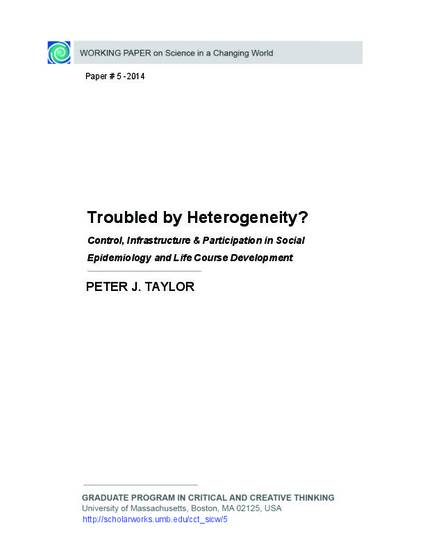
- epidemiology,
- heterogeneity,
- participation,
- variation
This working paper presents the panels of a poster prepared for a conference, “Complex Systems, Health Disparities, and Population Health: Building Bridges,” held at NIH in Bethesda, MD in February 2014. Just as poster presenters hope viewers stop and talk, my aim in sharing the panels as a working paper is to elicit more conversation about different kinds of heterogeneity and the ways they are addressed or suppressed in social epidemiology and life course development. The thinking behind this concern is as follows. The two foundational developments of modern biology—the theories of evolution by natural selection and the genetic basis of heredity—were built from language, arguments, evidence, and practices of controlled breeding in agriculture and the laboratory. The relationship between variation, particularity, or, more generally, heterogeneity and control provides an under-developed angle from which to view modern understandings of heredity and development over the life course and, more generally, in social epidemiology. My guiding contention is that research and application of resulting knowledge are untroubled by heterogeneity to the extent that populations are well controlled. Such control can be established and maintained, however, only with considerable effort or social infrastructure, which invites more attention to possibilities for participation instead of control of human subjects.
Available at: http://works.bepress.com/peter_taylor/12/
